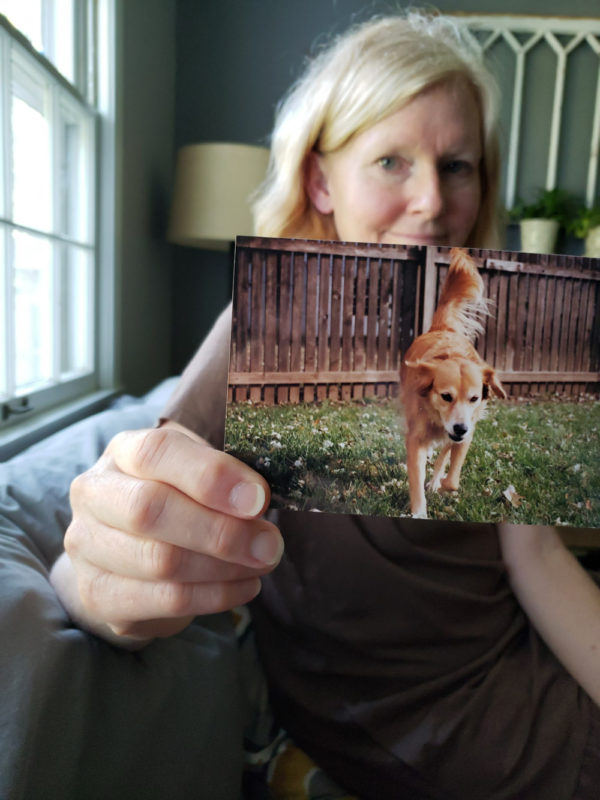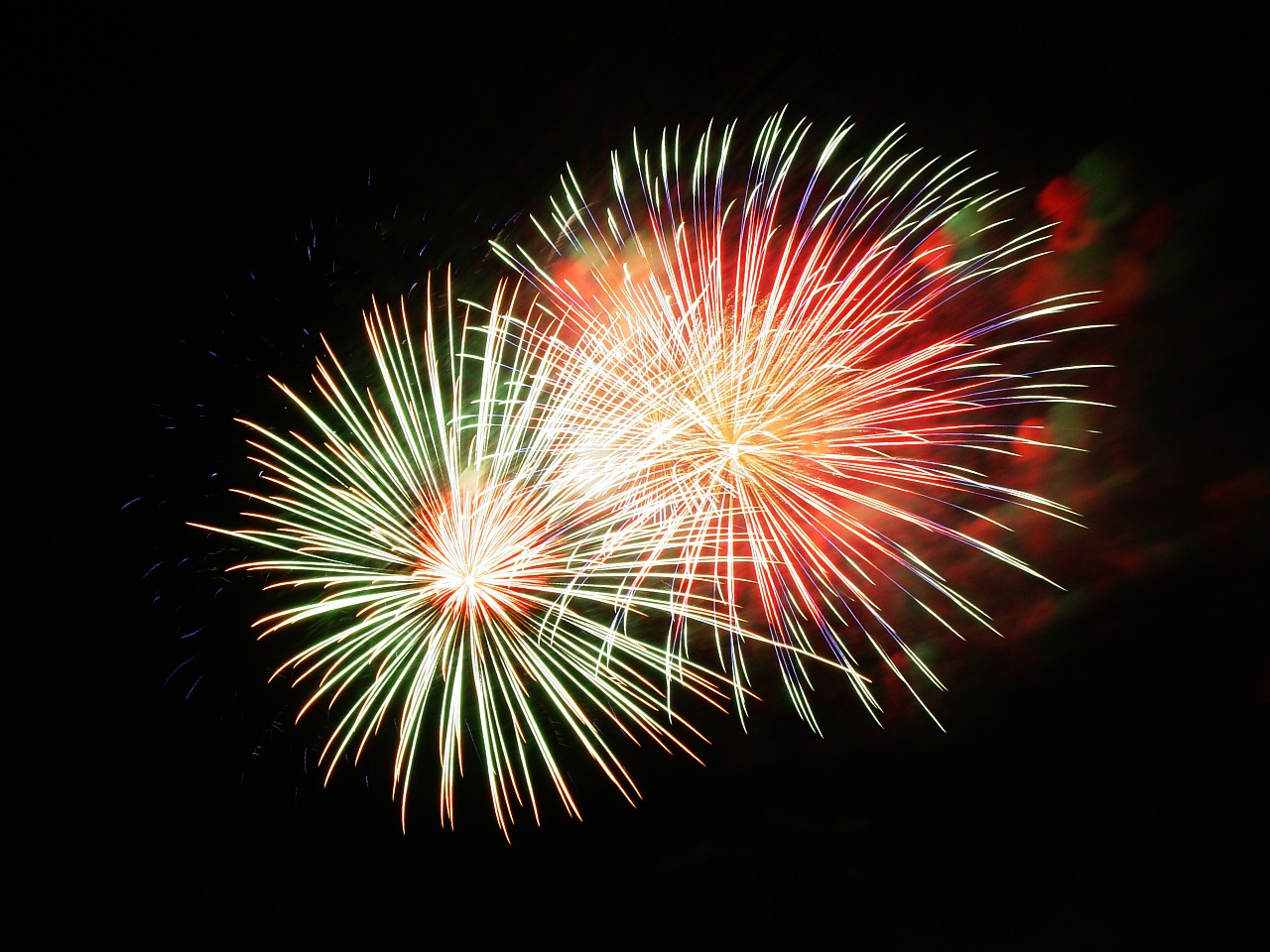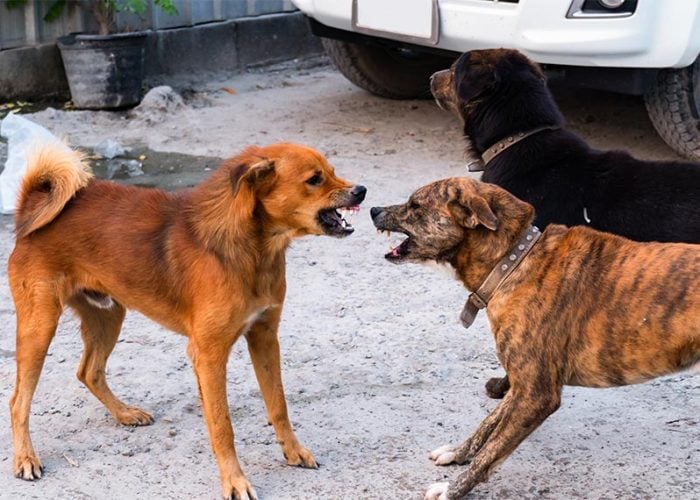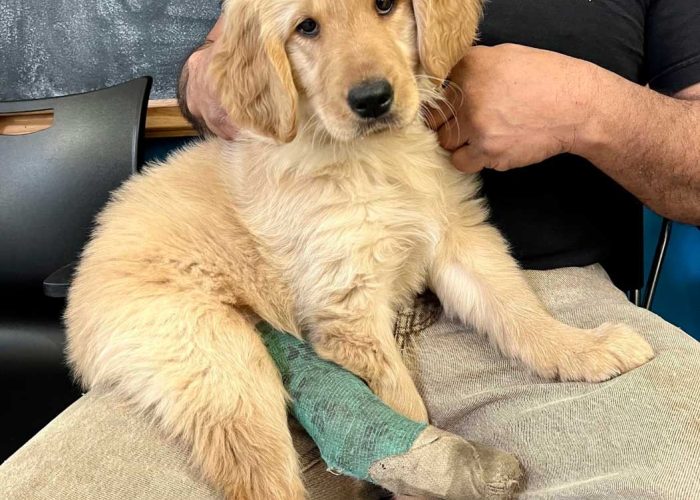The marred knob on my basement door tells the story.
It was probably 20 years ago. My neighbor invited me over to grill out for the fourth. As it turned dark, he pulled out a box of fireworks and began shooting them into the sky. We knew our dog, Annie, was not a fan of thunder and assumed that fireworks could potentially cause issues. We thought the cool darkness and calm of our basement would shield her from getting anxious.
We were wrong.
When we got home a little before 10, we heard her frantically working on the basement door. When we opened it, she bolted out, charging around our house searching for a place to hide.
Eventually we calmed her down and then went to check the basement. I had visions of wallboard eaten half way up and a trip to the emergency vet. Instead, the door, door frame, and wall were covered in deep claw marks. More startling, though, was the doorknob. It had deep chew marks covering it. And we’re not talking one of these modern, lightweight versions. The knob on our basement door is old school, heavy-duty metal. Our little 40 lb Saluki/Lab rescue managed to put some serious teeth marks in it.
Lesson learned.

Fireworks Can Send Your Pet Into Hysteria
Sadly, the biggest number of pets who go missing each year do so during the July fourth holiday, according to Pet Amber Alert.
They’ll scale tall fences or dig under them. Break through windows or dart through briefly-opened doors. Or destroy property and, worse, injure themselves trying to flee fireworks.
This year, being ready to help your pet avoid the anxiety will go a long way in making everyone’s holiday better, including yours. Here are some tips from Pet MD to give you a head start on celebrating the holiday:
- Leave your pet at home. It’s the safest place for your pet and helps them avoid the flash/bang of the fourth. If you have people over, keep pets away from the festivities so they don’t stress. And if you go someplace, don’t take them along and then leave them in your car. It can quickly get too hot for your pet and that can lead to overheating and potentially even death.
- Provide a safe spot: Put a crate somewhere and have it be the go-to place for your pet when the noise outdoors gets going. A closet can work, too, but either only works if your pet is accustomed to it. If not, it can lead to more anxiety.
- Leave the human food and drinks for people. Don’t feed your pet anything from the picnic table, especially alcohol.
- Make sure your pet is properly identified. In case of escape, you want your pet back quickly. The best chance of that is to have them microchipped and to make sure your contact info is up to date on Found.org.
- Be careful with matches and lighter fluid. If you plan to grill out, make sure to keep matches and lighter flood away from your pet. Both are dangerous if ingested and lighter fluid can irritate your pet’s skin. Also be careful of hot grills and dogs who want to sample that great smelling food.
- Keep emergency numbers handy. If something bad does happen, make sure you can quickly get a hold of someone who can help.
Plan Ahead
One of the things that seems to help our dogs prior to any event is a heavy dose of exercise. We get them out and make sure they have a long walk, visit to the dog park, our play fetch. This burns off enough energy that they’ll go to sleep – and stay asleep – when we get them into a quiet place away from all the commotion.
Another option is to just leave the area and go someplace where fireworks are not an issue. Whatever you decide, make sure you’re ready to help your pet deal with the festivities in a way that keeps everyone happy and healthy.


